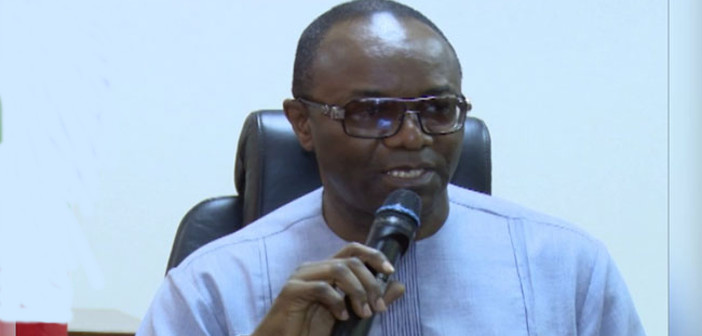Nigeria is planning to request an emergency meeting of the Organisation of Petroleum Exporting Countries (OPEC) as a response to worsening global crude oil prices which has deteriorated to a 12-year low of $31 a barrel amid fears that they may fall further.
For nearly a decade, global oil prices have stabilized around $100 a barrel, allowing Nigeria to budget for large-scale infrastructure spending. However, over the last six months, prices have gradually collapsed and now threaten to fall below production costs due to a combination of reduced demand, excess supply and market power play between Saudi Arabia and North America shale gas producers.
Emmanuel Ibe Kachikwu, Nigeria’s minister of state for petroleum resources, said a couple of OPEC members are requesting an emergency meeting, saying current market conditions justify the need to hold such a gathering. Benchmark Brent Crude, which is identical to Nigeria’s Bonny Light Crude, fell to their lowest level since April 2004 and have shed almost three-quarters of their value since mid-2014.
While delivering a speech at an energy conference in Abu Dhabi, Mr Kachikwu said: “A couple of countries have requested holding an emergency meeting. We did say that if the price hits $35 per barrel, we will begin to look at an extraordinary meeting and prices have now hit levels that necessitate a meeting.”
He added that any meeting that would take place would be to review OPEC’s position to see if there was any need to change its strategy, pointing out that the meeting could take place in February or March. Mr Kachikwu, who was OPEC president until the end of December, said that member states differ on the issue of intervention.
Saudi-led Gulf exporters within OPEC have so far refused to cut production to curb sliding prices, seeking to protect their market share despite a heavy blow to their revenues. However, Latin American and African producers, facing heavy economic hardship in their countries, are likely to demand to demand a cut in output to control the current market glut. The big question is how bad it will be before the Saudi-led resistance to production cut to change their stance.
Mr Kachikwu said: “One group feels there is a need to intervene and the other group feels even if we did, we are only 30% to 35% of the producers as 65% of supply comes from non-OPEC countries. Unless you have this 65% of producers coming back to the table, you really won’t make any dramatic difference.”




